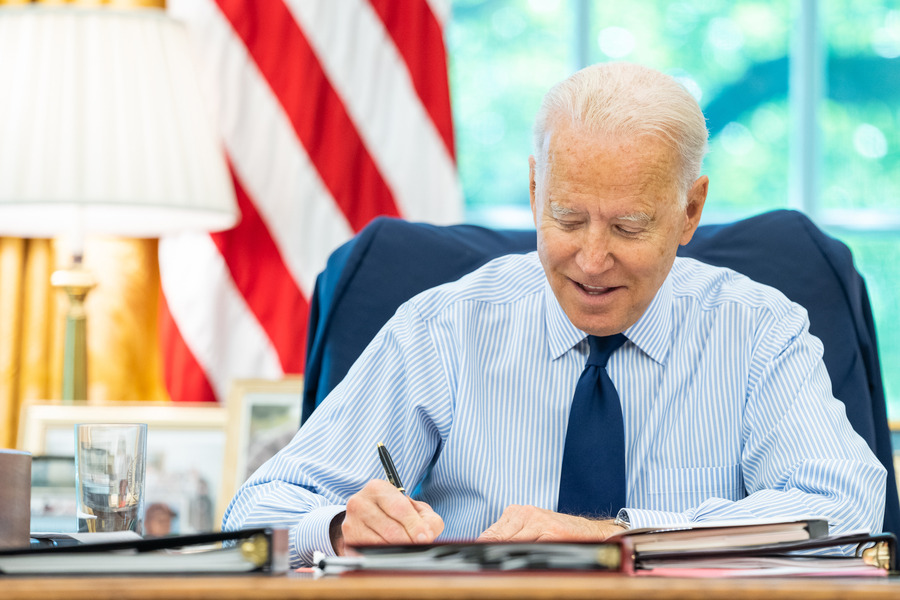Dan Byman on Guantanamo as Recruitment Tool
A few days ago, I expressed doubt as to the veracity of the President's comments that "Guantanamo is probably the number one recruitment tool that is used by these jihadist organizations." I did so tentatively because I am no expert in Al Qaeda recruiting, but given the prevalence of this point in the administration's Guantanamo talk, I thought I would bounce it off of a friend who is a true expert on Al Qaeda, its grievances, and its propaganda themes.
Dan Byman is a colleague at Brookings, a professor at Georgetown, and the author of any number o
Published by The Lawfare Institute
in Cooperation With

A few days ago, I expressed doubt as to the veracity of the President's comments that "Guantanamo is probably the number one recruitment tool that is used by these jihadist organizations." I did so tentatively because I am no expert in Al Qaeda recruiting, but given the prevalence of this point in the administration's Guantanamo talk, I thought I would bounce it off of a friend who is a true expert on Al Qaeda, its grievances, and its propaganda themes.
Dan Byman is a colleague at Brookings, a professor at Georgetown, and the author of any number of important books and articles on America's confrontation with violent extremists. Here is what he said:
Al-Qa’ida and associated movements do mention alleged abuses of prisoners at Guantanamo in their propaganda, but this is not a major theme--and certainly not one that al-Qa’ida recruits regularly cite as a reason for joining up. The presence of U.S. military forces in Iraq and Afghanistan are dominant propaganda and recruitment motifs, and images of Israeli abuses of Palestinians are also high on the list. Soldiers killing innocents play into al-Qa’ida’s self-image (and best recruiting pitch) that their member are heroic knights defending embattled innocent Muslims. Other emotive issues, such as Danish cartoons mocking the prophet Mohammad or the ban on the veil in France also get screen time. When Guantanamo is mentioned, it is often deliberately conflated with Abu Ghraib, with a healthy dose of quite wild conspiracy theories added just to make things even more compelling.
Guantanamo does matter more, however, as a symbol among allied publics in Europe and elsewhere. This audience is potentially sympathetic to the United States on counterterrorism but sees Guantanamo as the embodiment of a U.S. overreaction to the 9/11 attack. (In a way, Guantanamo is a symbol of Bush administration counterterrorism, which they reflexively hate, without giving the particulars any serious thought.) This resentment has a limited impact on policy, as allied governments are a tad less likely to work with the United States in the face of public skepticism. But more basic concerns such as the level of threat the country faces and the domestic politics of the moment weigh more heavily on leaders’ calculations. As the various Wikileaks reports suggest, many governments that criticize Guantanamo are reluctant to take back their own citizens or residents held there.
Indeed, you only have to be a little bit cynical to see that for some governments the current situation is ideal. The United States holds a few of their potentially dangerous residents, stopping them from doing harm. At the same time, the governments avoid the messiness of a trial or their own preventive detention programs. As a bonus, these leaders get to score political points by lambasting the United States for its disregard for human rights.Dan's last point here dovetails neatly with an argument I make at some length in my new book concerning the relationship between Europe and the United States on detention--one to which I will return. But for present purposes, I want to focus on his first point--that Guantanamo is at best a minor theme in Al Qaeda propaganda. This point returns us to an argument I have made before that the administration needs to adjust its talk about the facility. Three simple recommendations:
- If you're not going to fight to close it, stop insisting that closure is a national security imperative.
- If you're not going to fight to close it, stop delegitimizing it as an offense to American values.
- More generally, stop overstating the importance of closure.
Benjamin Wittes is editor in chief of Lawfare and a Senior Fellow in Governance Studies at the Brookings Institution. He is the author of several books.





